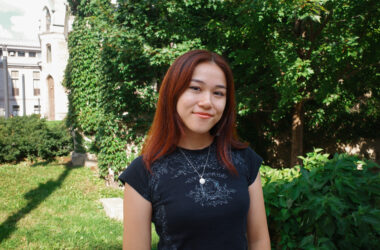As undergraduate students, it’s easy to get caught up in thinking we need to have our professional trajectory entirely figured out before graduating. It doesn’t help that we’re encouraged to scramble for internships in order to beef up our resumes, or that some girl from your high school already has a TED Talk. McGill’s environment places a strong emphasis on the importance of preparing ourselves for the “adult” world—yet, so many of us end up with even less of an idea of what to do with our lives after experiencing a diverse roster of classes and experiences while at university.
The good news is that most people have no idea what they’ll be doing in the future. When I was young, I found out my pediatrician was an anthropologist before deciding he preferred working with sick children. It’s only human to need time to figure things out before discovering what path you want to take. In fact, adopting a slow and deliberate approach may actually be beneficial in the long run.
The Slow Science movement, for instance, was born out of frustration with the accelerated pace at which peer-reviewed journal publications are pumped out. The Slow Science Manifesto insists, “Science needs time to think. Science needs time to read, and time to fail. Science does not always know what it might be at right now.”
A similar philosophy can and should be applied to the professional development of university students. For many of us, especially in the Faculty of Arts, university marks the beginning of our exposure to a vast number of disciplines—and a mere three or four years of study is sometimes not enough to gauge whether one would actually enjoy pursuing a certain professional path for the rest of his or her live. The emphasis that our campus culture places on choosing a meaningful and lucrative career can exacerbate the feeling of uncertainty that we already grapple with.
As students, we need time to think. We need time to get incredibly invested in one academic discipline—only to find out that actually working in said field would probably not be all that enjoyable. Additionally, we need to accept that although we are constantly bothered about whether we know what direction we’re heading in, we do not need to have it figured out right off the bat.
The Slow Science movement holds that the most important scientific discoveries about our world were not made under time constraints and deadlines. Similarly, students are unlikely to discover what they’re really passionate about while juggling internship applications and a full-time course load. Sometimes taking time off during the summer to pursue hobbies and skills—like learning to code, drawing, or volunteering—can teach you more about yourself and your priorities than being overworked.
The Slow Science Manifesto addresses the issue of societal pressure—“Society should give scientists the time they need, but more importantly, scientists must take their time.” University culture won’t necessarily encourage us to become more slow and deliberate, but we can certainly make that choice for ourselves. It is also important to understand the difference between taking one’s time and procrastinating. Avoiding an important task that needs to get done can be considered procrastination—therefore, many students are inclined to believe that, by not dedicating all their time off school to professional development, they are stalling.
Taking a break, clearing one’s mind, and exploring a variety of different options in order to better focus one’s effort can translate into valuable personal growth. Our post-graduation trajectories need not be clear-cut—but adopting a calm approach in the face of an uncertain future may be our best approach in finding our calling.









